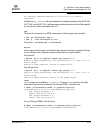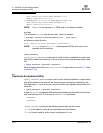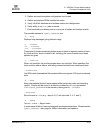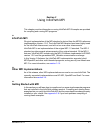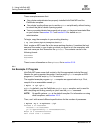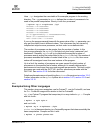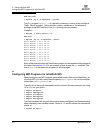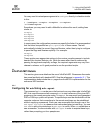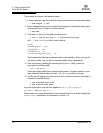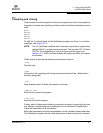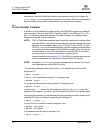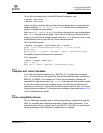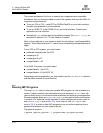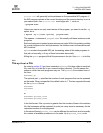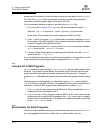
3 – Using InfiniPath MPI
InfiniPath MPI Details
IB6054601-00 D 3-5
Q
You may need to instead pass arguments to configure directly, in a fashion similar
to this:
$ ./configure -cc=mpicc -fc=mpif77 -c++=mpicxx
-c++linker=mpicxx
Sometimes you may need to edit a Makefile to achieve this result, adding lines
similar to:
CC=mpicc
F77=mpif77
F90=mpif90
F95=mpif95
CXX=mpicxx
In some cases, the configuration process may specify the linker. It is recommended
that the linker be specified as
mpicc, mpif90, etc. in these cases. That will
automatically include the correct flags and libraries, rather than trying to configure
to pass the flags and libraries explicitly. For example:
LD=mpicc
LD=mpif90
These scripts pass appropriate options to the various compiler passes to include
header files, required libraries, etc. While the same effect can be achieved by
passing the arguments explicitly as flags, the required arguments may vary from
release to release, so it's good practice to use the provided scripts.
3.5
InfiniPath MPI Details
This section gives more details on the use of InfiniPath MPI. We assume the reader
has some familiarity with standard MPI. See the references in appendix D.1. This
implementation does include the
man pages from the MPICH implementation for the
numerous MPI functions.
3.5.1
Configuring for ssh Using ssh-agent
The command mpirun can be run on the front end or on any other node. In InfiniPath
MPI, this uses the secure shell command
ssh to start instances of the given MPI
program on the remote compute nodes. To use
ssh, the user must have generated
RSA or DSA keys, public and private. The public keys must be distributed to all the
compute nodes so that connections to the remote machines can be established
without supplying a password. Each user can accomplish this through use of the
ssh-agent. ssh-agent is a daemon that caches decrypted private keys. You use
ssh-add to add your private keys to ssh-agent’s cache. When ssh establishes a
new connection, it communicates with
ssh-agent in order to acquire these keys,
rather than prompting you for a passphrase.



